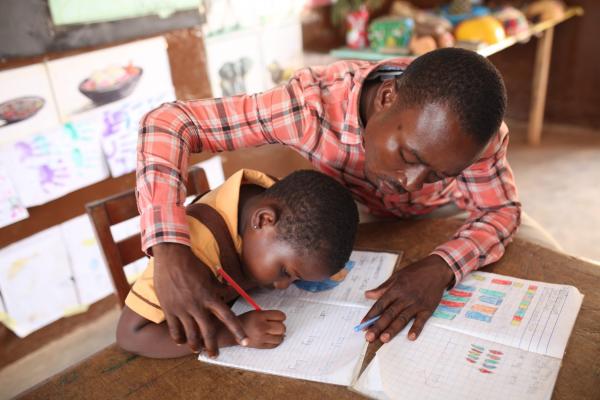

Special Education Needs
A Situational Analysis of Special Needs Education in Ghana By Dr. Leslie Casely-Hayford, Education Sector Review Team, for the Ministry of Education, July 2002
This study examines the effectiveness of the Ministry of Education’s Special Education programme and other Non Governmental agency initiatives for Children with special needs through analysis of the current services and existing needs of institutions and communities across Ghana . It reviews key areas of special education such as policy targets, goals and guidelines, the MOE’s programme for mainstreaming and integrating children with special needs into the formal education system. It also reviews the current status of teacher education, the provision and effectiveness of curriculum and teaching/learning materials; the role of MOE and the GES in the execution of the special education programming at the district level, and the cost effectiveness and quality of services provided for children with special needs which has been provided. The study indicates the need for implementation of a systematic programme for inclusive education, preparing stakeholders working in the school system to assist children with special needs integrate into the mainstream system.
A Review of Good Practice in ICT and Special Educational Needs for Africa by Dr. Leslie Casely-Hayford and Paul Lynch, an IMFUNDO Knowledge Bank Initiative, September 2003.
This study investigates how good practice and experience from global use of Assistive Technology (AT) can be shared with African governments and people working in the special education sector. It focuses on the use of Information and Communication Technology (ICT) to support Special Educational Needs in Africa with particular reference to special schools, teacher education and inclusive educational programming. The main disability groups considered in this report are the hearing impaired, vision impaired and children with general learning disabilities.
For a link to this and other DFID publications visit www.dfid.gov.uk/pubs/
Information and Communication Technology (ICT) based Solutions for Special Education Needs (SEN) in Ghana: Strategic Preparation for the Use of ICT to Support the Delivery of the Ghana Education Services' Special Education Division's (SpED), Core Objectives. By Dr. Leslie Casely-Hayford and Paul Lynch, an IMFUNDO Knowledge Bank Initiative, DFID, October 2003.
In Ghana, between 20-25% of children in regular schools experience some type of impairment which is often not readily discernible but can affect the child’s performance resulting in failure or dropout (SpED) in formal education, and approximately 6% of the Ghanaian population have a mild to severe disability. Yet less than 4% of the Ministry of Education, Youth and Sports’ (MOEYS) budget supports special needs education for children.
This report investigates how the innovative practice and experiences from global use of Information and Communication Technology (ICT) can be utilized in the areas of teacher training, inclusive school settings and special needs schools in Ghana . Prepared for the Ghana Education Service (GES) Special Education Division (SpED), the report provides an overview of how best to use ICT to support the Special Education sector in Ghana . It also provides an in- depth analysis of the special education challenges across the country, and presents concrete proposals and recommendations for using ICT to support the delivery of the Ghana Education Services’ Special Education Division’s (SpED) core objectives on a long term basis.
For a link to this and other DFID publications visit www.dfid.gov.uk/pubs/
